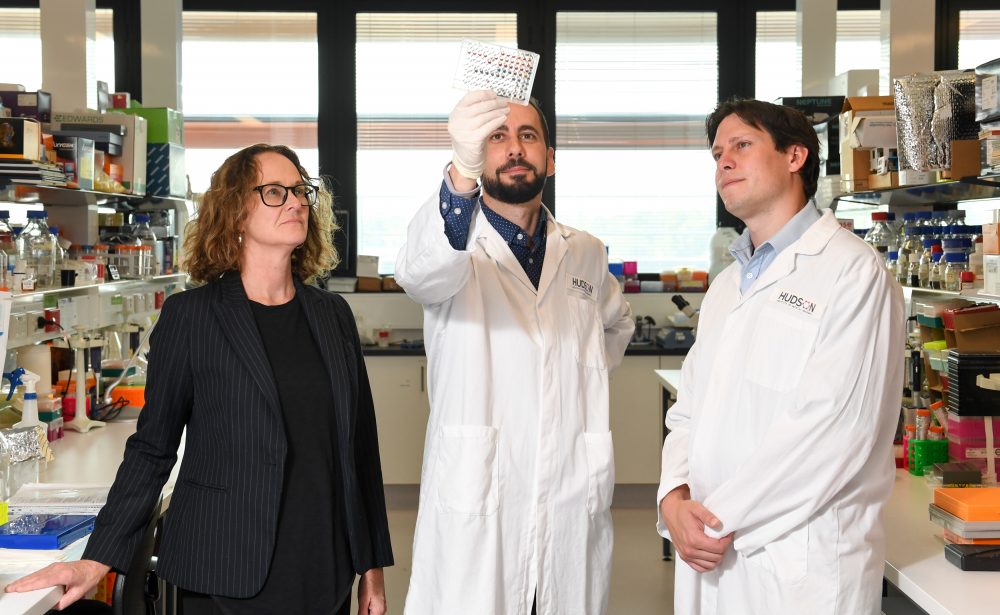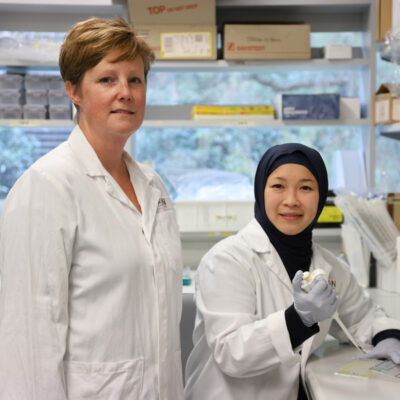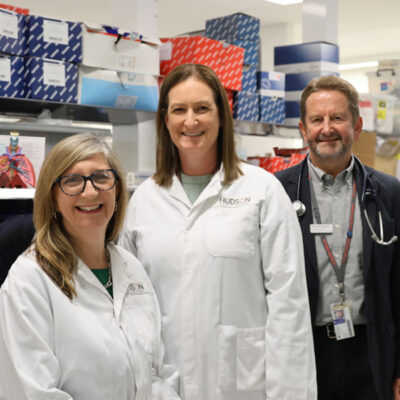Why inflammation is important
By Rob Clancy, staff writer. Reviewed by Professor Elizabeth Hartland AM

Inflammation is the essential physiological response that keeps you alive but can also kill you.
Inflammation protects the human body from bacteria, viruses and other invaders, but in its chronic form it contributes to more than half of all deaths worldwide.
In the distressing images we have all seen during the pandemic of COVID-19 patients on ventillators, fighting for every breath, hyperinflammation – the body’s response to the virus – is the cause.
Is it any wonder Hudson Institute of Medical Research is committed to finding out more about inflammation?
Hudson Institute Director and CEO Professor Elizabeth Hartland believes managing inflammation effectively can potentially alleviate hundreds of deadly or debilitating conditions affecting millions of Australians.
Dangerous and damaging inflammation
“There is still so much we don’t know about the dangerous and damaging inflammation that leads to acute respiratory distress syndrome, chronic obstructive pulmonary disease, cancer, heart disease, kidney disease, inflammatory bowel disease and more,” Prof Hartland says.
“Hudson Institute already has 150 expert scientists and clinicians working on inflammation – the largest concentration of inflammation researchers in Australia.”
Innovation and impact
“We believe that true innovation and impact in chronic disease lies in identifying the precise inflammation types that lead to damage in each patient, each organ and each disease, then targeting them for intervention.
“This personalised medicine approach to the causes and effects of inflammation is the solution to the rapid translation of research findings into effective new drugs and effective therapies,” she says.
 Good Weekend inflammation feature
Good Weekend inflammation feature
- See the Good Weekend magazine feature on inflammation.
- Download our inflammation factsheet
In this article
-
 Professor Elizabeth Hartland AM
Professor Elizabeth Hartland AM
Innate Immune Responses to Infection -
 Associate Professor Michael Gantier
Associate Professor Michael Gantier
Nucleic Acids and Innate Immunity -
 Associate Professor Samuel Forster
Associate Professor Samuel Forster
Microbiota and Systems Biology -
 Professor Claudia Nold
Professor Claudia Nold
Interventional Immunology in Early Life Diseases -
 Professor Marcel Nold
Professor Marcel Nold
Interventional Immunology in Early Life Diseases
About Hudson Institute
Hudson Institute’ s research programs deliver in three areas of medical need – inflammation, cancer, women’s and newborn health. More
Hudson News
Get the inside view on discoveries and patient stories
“Thank you Hudson Institute researchers. Your work brings such hope to all women with ovarian cancer knowing that potentially women in the future won't have to go through what we have!”




